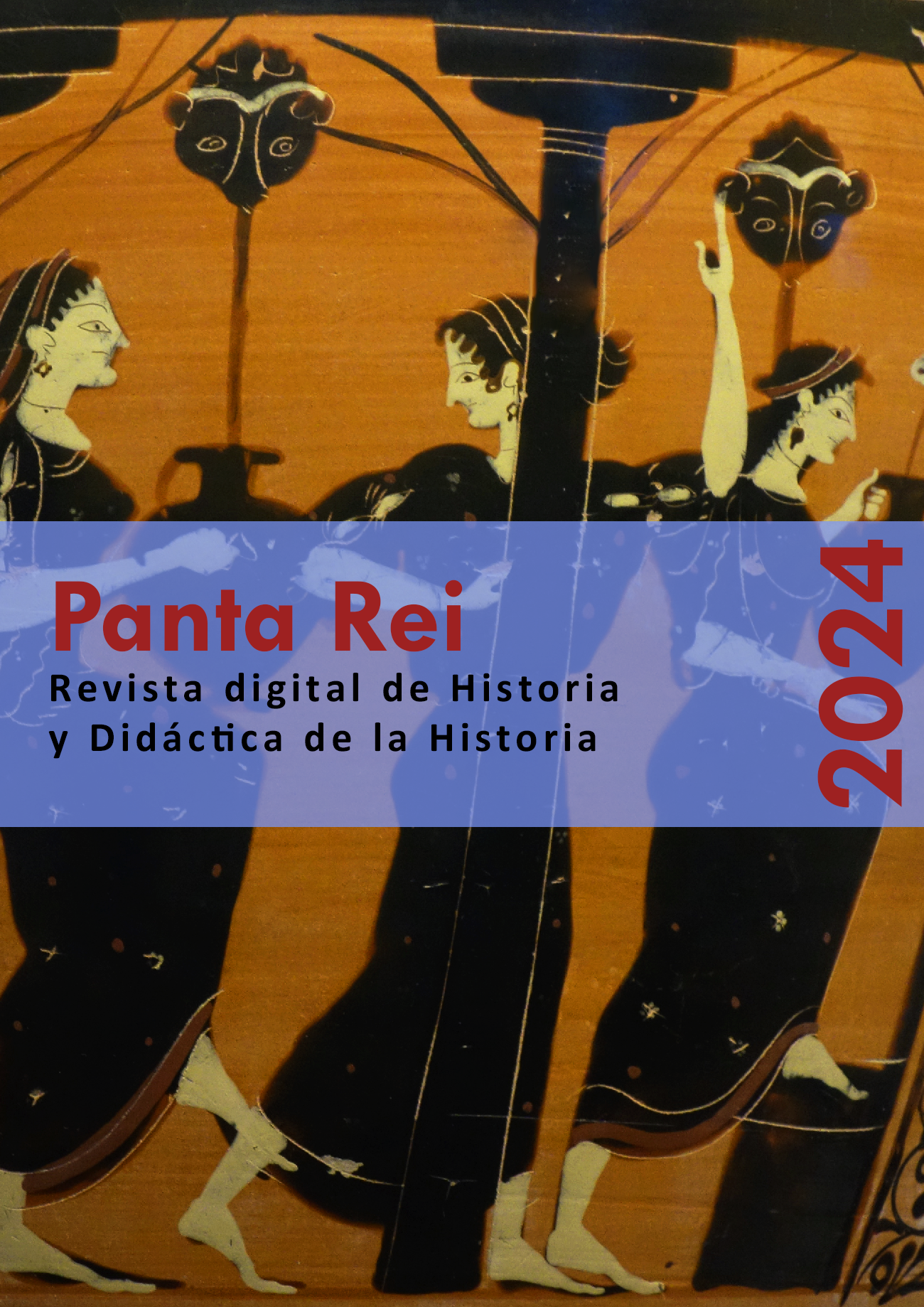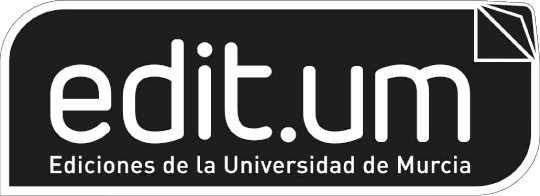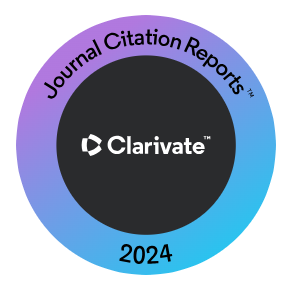Conceptions about the future and how to teach it in pre-service teachers. A comparative study between Spain and Italy
Supporting Agencies
- Esta investigación se ha diseñado y realizado gracias a la financiación recibida durante la formación como Personal Investigador en Formación (PIF) de Noelia Pérez-Rodríguez (VI Plan Propio de Investigación y Transferencia de la Universidad de Sevilla).
Abstract
Research is presented which focuses on the conceptions of pre-service teachers about the future and its teaching. A review is made of some of the most interesting contributions in this field at international level. The study sample is composed of 114 students from two universities, one in Italy and one in Spain. Their answers to open-ended questions in a questionnaire are analysed qualitatively based on a system of categories. The results show broad agreement with the literature on this issue, although they introduce several nuances and show slight differences between the two countries. In conclusion, based on the results, some training strategies are proposed that could have an impact on the improvement of initial teacher training in this area.
Downloads
-
Abstract403
-
PDF (Español (España))225
-
EPUB (Español (España))46
References
Anguera, C. (2013). Una investigación sobre cómo enseñar el futuro en la educación secundaria. Enseñanza de las Ciencias Sociales, 12, 27–35.
Anguera, C. (2016). Images of the Future: Perspectives of Students from Barcelona. Journal of Futures Studies, 21(1), 1–18. https://doi.org/10.6531/JFS.2016.21(1).A1
Anguera, C., & Santisteban, A. (2012). El concepto de futuro en la enseñanza de las Ciencias Sociales y su influencia en la participación democrática. En De Alba, N., García, FF. y Santisteban, A. (Eds.) Educar para la participación en la enseñanza de las Ciencias Sociales (pp. 391-400). Editorial Díada.
Apple, M. W., Biesta, G., Bright, D., Giroux, H. A., Heffernan, A., McLaren, P., Riddle, S., & Yeatman, A. (2022). Reflections on contemporary challenges and possibilities for democracy and education. Journal of Educational Administration and History, 1–18. https://doi.org/10.1080/00220620.2022.2052029
Barton, K. C. (2014). Teaching for historical thinking. Revista Andamio, 2(1), 13-20.
Casadellà, M., Massip, M., González, N., Dias-Gomes, A., & Barroso-Hortas, M. J. (2022). Imagination, education for the future and democratic culture: Educational policies in the Iberian Peninsula. Comunicar, 30(73), 57–67. https://doi.org/10.3916/C73-2022-05
Castellví, J., Escribano, C., Santos, R., & Marolla, J. (2022). Educación para el futuro: Currículo y prácticas educativas en Australia, España y Chile. Comunicar, 30(73), 45-55. https://doi.org/10.3916/C73-2022-04
Delgado-Algarra, E. J., & Estepa Giménez, J. (2017). Educación ciudadana y dimensiones de la memoria en la enseñanza de las ciencias sociales: investigación sobre las concepciones del profesorado de Educación Secundaria de Huelva y provincia. Educación XX1, 20(2), 259-278. https://doi.org/10.5944/educXX1.11926
Duggan, J.R., Lindley, J., & Mcnicol, S. (2017). Near future school: World building beyond a neoliberal present with participatory design fictions. Futures, 94, 15-23. https://doi.org/10.1016/j.futures.2017.04.001
Estellés, M., Amo, F. J., & Romero, J. (2021). The Consensus on Citizenship Education Purposes in Teacher Education. Social Sciences, 10(5), 164. https://doi.org/10.3390/socsci10050164
Friese, S. (2012). Qualitative data analysis with atlas.ti. Sage.
Haggstrom, M., & Schmidt, C. (2021). Futures literacy -To belong, participate and act! An educational perspective. Futures, 132, 102813-102813. https://doi.org/10.1016/j.futures.2021.102813
Inayatullah, S. (2007). Questioning the future. Tamkang University Press.
Inayatullah, S. (2013). Learnings from futures studies: Learnings from dator. Journal of Futures Studies, 18(2), 1-10. https://bit.ly/36BuTqA
Kononiuk, A., Sacio-Szymanska, A., Ollenburg, S., & Trivelli, L. (2021). Teaching foresight and futures literacy and its integration into university curriculum. Foresight and STI Governance, 15(3), 105-121.
Legardez, A. (2017). Propositions pour une modelisation des processus de didactisation sur des questions socialement vives. Sisyphus Journal of Education, 5(02), 79–99. https://hal-amu.archives-ouvertes.fr/hal-01794120/document
Legardez, A., Jeziorski, A., & Cadet-Mieze, M. (2021). Panorama des études francophones sur des questions vives socio-environnementales, dans une perspective didactique. REIDICS. Revista de Investigación en Didáctica de las Ciencias Sociales, 9, 59-78. https://doi.org/10.17398/2531-0968.09.59
Mangnus, A.C., Oomen, J., Vervoort, J.M., & Hajer, M.A. (2021). Futures literacy and the diversity of the future. Futures, 132, 102793-102793. https://doi.org/10.1016/j.futures.2021.102793
Mcmain, E.M., & Edwards-Schuth, B. (2021). Horrors of the Great Banal. Policy Futures in Education. https://doi.org/10.1177/14782103211031422
Menéndez-Alvarez-Hevia, D., Urbina-Ramírez, S., Forteza-Forteza, D., & Rodríguez-Martín, A. (2022). Contributions of futures studies to education: A systematic review. Comunicar, 30(73), 9-20. https://doi.org/10.3916/C73-2022-01
Montero-Baena, A.B. (2017). Gaming futures: To experience scenarios through teatro del devenir. Journal of Futures Studies, 22(2), 119-124. https://doi.org/10.6531/JFS.2017.22(2).E119
Navarro-Medina, E., Pérez-Rodríguez, N., & de Alba-Fernández, N. (2022). Developing Trainee Teachers’ Social and Technological Skills: Using Twitter to Highlight Social Problems | Desarrollo de competencias sociales y tecnológicas de maestros en formación: visibilizando problemas sociales con Twitter. Revista Electronica de Investigacion Educativa, 24. https://doi.org/10.24320/redie.2022.24.e29.4228
Pace, J. L. (2019). Contained risk-taking: Preparing preservice teachers to teach controversial issues in three countries. Theory and Research in Social Education, 47(2), 228–260. https://doi.org/10.1080/00933104.2019.1595240
Pagès, J. (2019). Teaching history, educating temporality, training for the future. El Futuro del Pasado (Vol. 10, pp. 19–56). https://doi.org/10.14516/fdp.2019.010.001.001
Pagès, J. (2011). Educación, ciudadanía y enseñanza de la historia. In Perspectivas do Ensino de História: Ensino, Cidadania e Consciência Histórica (1 ed., Vol. 1, pp. 17-31).
Pagès, J. (2021). La Formación del Profesorado de Historia y Ciencias Sociales para la Práctica Reflexiva. Nuevas Dimensiones. Revista de Didáctica de las Ciencias Sociales, (8), 57-67. https://doi.org/10.53689/nv.vi8.42
Pagès, J., & Santisteban, A. (2008). Cambios y continuidades: aprender la temporalidad histórica. In M. A. Jara (Ed.), Enseñanza de la Historia. Debates y Propuestas. (1 ed., pp. 91-127)
Pérez-Rodríguez, de-Alba-Fernández, N., & Navarro-Medina, E. (2022a). University and challenge of citizenship education. Professors´ conceptions in training. Frontiers in Education, 7, 1-17. http://dx.doi.org/10.3389/feduc.2022.989482
Pérez-Rodríguez, N., Navarro-Medina, E., & de-Alba-Fernández, N. (2022b). Enseñanza en torno a problemas y educación para la ciudadanía en la universidad. Obstáculos y dinamizadores del cambio en la formación docente universitaria. Didáctica de las Ciencias Experimentales y Sociales, 43, 33-52. https://doi.org/10.7203/dces.43.24433
Pietraszewski, B.A. (2016). Developing future scenarios: Business students and librarians employing foresight techniques in tandem during course support. Journal of Business and Finance Librarianship, 21(3-4), 239-257. https://doi.org/10.1080/08963568.2016.1226615
Pouru-Mikkola, L., &Wilenius, M. (2021). Building individual futures capacity through transformative futures learning. Futures, 132, 102804-102804. https://doi.org/10.1016/j.futures.2021.102804
Romero Morante, J. (2021). Apuntes para una sociogénesis del currículum centrado en problemas sociales. REIDICS. Revista de Investigación en Didáctica de las Ciencias Sociales, 9, 14-40. https://doi.org/10.17398/2531-0968.09.14
Rubin, A. & Linturi, H. (2001). “Transition in the Making. The Images of the Future in Education and Decision-making” Futures Vol. 33 No. 3-4, April/May, pp. 267-305.
Rüsen, J. (2010): Didática da História: passado, presente e perspectivas a partir do caso alemão. En Schmidt, M.A., Barca, I., Martins, E.R. (org.). Jörn Rüsen e o ensino de História. Editora da UFPR, pp. 23-40.
Santisteban Fernández, A. (2017). La investigación sobre la enseñanza de las Ciencias Sociales al servicio de la ciudadanía crítica y la justicia social. En Investigación en Didáctica de las Ciencias Sociales. Retos, preguntas y líneas de investigación (pp. 558-567). Universidad de Córdoba y AUPDCS.
Santisteban Fernández, A. (2019). La enseñanza de las Ciencias Sociales a partir de problemas sociales o temas controvertidos: estado de la cuestión y resultados de una investigación. El Futuro del Pasado, 10, 57-79. https://doi.org/10.14516/fdp.2019.010.001.002
Seongwon, P., & Kang, K. (2014). Research on future jobs of youth that has been viewed by futures workshops. Journal of Korean Practical Arts Education, 27(3), 225-243. https://bit.ly/3IhFK6S
Strauss, A. L. & Corbin, J. (2002). Bases de la investigación cualitativa: técnicas y procedimientos para desarrollar la teoría fundada (1. ed.). Editorial Universidad de Antioquia.
Copyright (c) 2024 Nicolás De Alba Fernández, Noelia Pérez-Rodríguez, Elisa Navarro-Medina, Luisa Zecca

This work is licensed under a Creative Commons Attribution-ShareAlike 4.0 International License.
All the contents published in this journal are subject to an Attribution-ShareAlike 4.0 International (CC BY-SA 4.0) Creative Commons License. You are free to: Share — copy and redistribute the material in any medium or format, Adapt — remix, transform, and build upon the material, for any purpose, even commercially. Under the following terms:
Attribution — You must give appropriate credit, provide a link to the license, and indicate if changes were made. You may do so in any reasonable manner, but not in any way that suggests the licensor endorses you or your use.
ShareAlike — If you remix, transform, or build upon the material, you must distribute your contributions under the same license as the original.
Full text of the license is available in: Creative Commons License 












